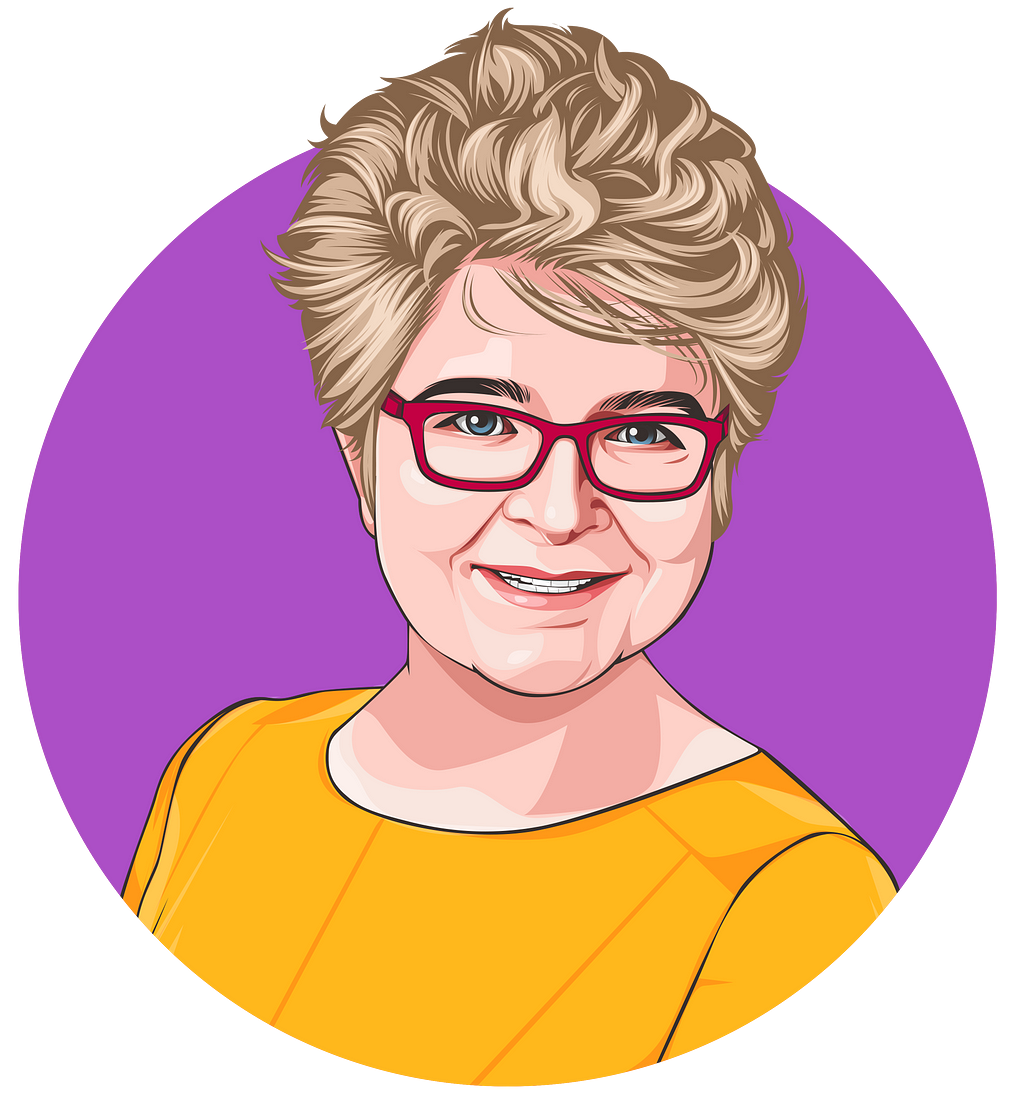Operational Scalability: Dimitra Rizzi of Elohi Strategic Advisors On How To Set Up Systems, Procedures, And People To Prepare A Business To Scale

Have a team that understands systems, procedures and people. If you set up a system but it doesn’t take into account the people who will execute it, the system will fail. You need an executive team that includes both aspects of operational scalability, the right- and left-brained aspects, the functional and the emotional. You need a team that can balance.
In today’s fast-paced business environment, scalability is not just a buzzword; it’s a necessity. Entrepreneurs often get trapped in the daily grind of running their businesses, neglecting to put in place the systems, procedures, and people needed for sustainable growth. Without this foundation, companies hit bottlenecks, suffer inefficiencies, and face the risk of stalling or failing. This series aims to delve deep into the intricacies of operational scalability. How do you set up a framework that can adapt to growing customer demands? What are the crucial procedures that can streamline business operations? How do you build a team that can take on increasing responsibilities while maintaining a high standard of performance?
In this interview series, we are talking to CEOs, Founders, Operations Managers Consultants, Academics, Tech leaders & HR professionals, who share lessons from their experience about “How To Set Up Systems, Procedures, And People To Prepare A Business To Scale”. As part of this series, we had the pleasure of interviewing Dimitra Rizzi.
Dimitra Rizzi is the Chief Executive Officer at Elohi Strategic Advisors. Prior to Elohi, Dimitra spent over 25 years proving herself to be an accomplished C-suite leader in Foodservice Sales and Retail Operations for companies such as Wendy’s and G.E.T. Enterprises. Growing up in the restaurant business, she took a hiatus from corporate America to return to her roots and opened and operated a 32-unit bagel restaurant franchise. She has a successful track record in strategic sales planning & execution, training & development, retail design, systems & processes, and customer marketing. Dimitra is customer and result-driven with strong analytical, financial, and performance management competencies. She has the unique capability to translate strategy into effective action through her leadership and her understanding of organization design and development. Dimitra has an unlimited capacity to absorb new business challenges, as well as teach her sales teams in a demanding work environment while cross-functionally building stakeholders throughout the organization. She is solution-oriented and inspires everyone with her positive attitude, energy, and strategic brilliance and dedication to get the job done.
Thank you so much for your time! I know that you are a very busy person. Our readers would love to “get to know you” a bit better. Can you tell us a bit about your ‘backstory’ and how you got started?
I’m Greek, and there’s a joke about how somebody dies and they go to heaven. Someone asks, “Did you see any Greek people?” And the guy says, “No, they were all in the kitchen cooking dinner.”
Greeks love to cook and to eat, and my family was in the restaurant business. So I come from a long history of being in the industry where I work now.
It has been said that our mistakes can be our greatest teachers. Can you share a story about the funniest mistake you made when you were first starting? Can you tell us what lesson you learned from that?
The funny story is that I went to college with a plan never to be in the food business. I got three degrees — one in political science, one in international business and economics, and one in psychology. The whole idea was that I would do something internationally, definitely outside of the food and restaurant business.
I had a contract to work in communications for a company in Thailand, but my mom fell ill and my plans changed. I fell back into the restaurant business and went to work with Wendy’s — even though I’d thought I wanted out of the restaurant business and even though growing up I never ate fast food.
The funny part is that food and foodservice have directly led to my working for international businesses, from Wendy’s to Sara Lee to the clients we work with at Elohi Strategic Advisors, who come from all over the world.
What do you think makes your company stand out? Can you share a story?
We help people bring new products to the market, whether it’s a brand-new innovation or a well-established company that has a new product. Most people in the food and beverage industry would prefer to work on something that’s established, something that’s already been figured out or that has an established market.
Everyone on the Elohi executive team understands what it takes to scale a business, to go from zero to being infinitely successful. Getting started, putting the effort in to start the flywheel spinning, is hard, and as leaders we have to figure out how to inspire people to do that hard work.
For us, real teamwork means that team members jump in to do whatever needs to be done. If you need to jump into operations, you do that. If you need to go out and sell as a leader, you do that. Being a team player means understanding all the things that have to be done, and being willing to do them.
Other companies build strategies for companies, these siloed strategies that take just one aspect of the business into account, and then they walk away.
Elohi helps brands build an integrated strategy that includes all the aspects of the business, and then we also help execute the strategy. So we’re not just telling you want to do and wishing you well. No, we’re giving you a plan and then helping you execute that plan, helping you adjust and pivot if necessary. We’re not just talking the talk with our clients; we go out and walk the walk with them, too.
You are a successful business leader. Which three character traits do you think were most instrumental to your success? Can you please share a story or example for each?
I had all this knowledge of the foodservice business, of what it’s like to own a restaurant, from my family. So that’s one.
And then I got to learn all these new things — the things I’d learned in getting my degrees. Even though I didn’t think of the food business as having to do with international business, politics or psychology, I use skills from all of those disciplines every day.
And lastly, the experiences I had working. I learned about systems and processes and being able to scale a business in a way that can be done profitably from Dave Thomas at Wendy’s. At Sara Lee I learned about being an expert on your product, whatever it is. You can’t go out and represent your product if you don’t know everything about it. I went to work with Rewards Network, and I learned about value, and about bringing value to your customer. If you aren’t bringing something of value to the customer, you can’t lead the team that’s supposed to be doing it.
Leadership often entails making difficult decisions or hard choices between two apparently good paths. Can you share a story with us about a hard decision or choice you had to make as a leader? I’m curious to understand how these challenges have shaped your leadership.
Foodservice is a much more complex industry than just running an independent restaurant. Going to work for Wendy’s, starting at the ground level and then as a manager of a store, and then as a district manager, all the way up to working directly with Dave Thomas, I learned about leadership.
I built teams at Wendy’s with more than five hundred people on them, before I left to go and start my own bagel franchise.
What I learned quickly is that you have to be a student of your craft, and not just of the food or of whatever you’re doing or selling, but a student of the craft of leading people and of the particular people you’re leading.
You can be a leader whose attitude is about “I’ve arrived and everybody needs to listen to me,” or you can be a servant leader. The choice is between being full of ego and on a power trip, and being intent on collaboration and on seeing others succeed.
You have to choose to help people along, to create a path for them and hope they choose to take it. You have to hope they choose that path to success you’ve created.
How do you do that? Three things: One, I’d tell you that if you’re a leader and you’re not having fun, to stop, because your team will know it. Two, make the work seem achievable. And three, gather the right people around you to think about all the options, to consider all the possibilities.
Thank you for all that. Let’s now turn to the main focus of our discussion about Operational Scalability. In order to make sure that we are all on the same page, let’s begin with a simple definition. What does Operational Scalability mean to you?
I think operational scalability had two sides. The first one is functional, the financial side of things, the practicalities.
- What’s your burn rate?
- What’s a customer’s lifetime value?
- What does it cost to get a customer?
- How financially healthy is your company?
- What’s your retention rate of both your external customers and your internal customers, your employees?
- What’s the productivity of each employee?
At the end of the day, that side wants to know: What’s the return on investment on every single thing you’re doing?
What you need are people with cross functionality — the product team, R&D, marketing, sales, supply chain coming together and strategizing together.
The other side of operational scalability, though, understands that for innovation, you don’t have any answers to those questions. You might have predictions or models, or you can forecast yourself to death, but you don’t have hard numbers.
This second side has the chutzpah to lead the charge and say, “Yep, we can go out and grow this thing. Here’s where we’re going to go first and here’s where it’s going to take a little longer. But we can make this happen.”
That person needs to figure out the path forward, and also manage up and across and down in order to scale the business. They have to inspire the people to go out there and sell, and they have to believe in what they’re doing.
In the food and beverage space where we work, you need a leadership team that can understand the business of taking a new product to scale — let’s say an alternative milk — the supply chain, production, marketing and sales, all the practicalities. And the leadership team also has to understand how people will feel about an oat milk, say, and how they’ll react, what will help them imagine it and then try it and then like it, maybe even better than cow milk. You need a team with both those abilities.
Why is it so important for a business to invest time, energy, and resources into Operational Scalability?
In 2020, when the pandemic began, Elohi had been working for years with start-ups and alternative protein and had built solid success. Operational scalability means being able to pivot, and any food and beverage company that couldn’t pivot with the pandemic fell on hard times.
That alternative protein space continues to grow, and we continue to work with new-to-the-world brands. But COVID gave us a chance to pivot, and to add bigger companies to our clients, because in general bigger companies have a harder time with innovation.
Big companies need innovation, but they often have people internally who say, “Am I going to be able to sell this new product?” People get comfortable doing the obvious, the familiar. They get comfortable doing what’s comfortable. They want to keep selling the familiar product, the product they know will get them their bonus.
To create something new, to do something new, you have to get comfortable with being uncomfortable. You have to think of new ways, and some of them may not be so obvious as what you’ve already done or what you’ve always done. Innovation can be harder in a bigger company that has more of a status quo than younger companies.
Our pivot was that we shifted from helping only smaller, newer businesses bring their products to market and help them scale, to helping bigger, more established companies bring new products to market and scale, because they can have a whole other set of challenges.

Based on your experience and success, what are the “Five Most Important Things A Business Leader Should Do To Set Up Systems, Procedures, And People To Prepare A Business To Scale”?
- Have a team that understands systems, procedures and people. If you set up a system but it doesn’t take into account the people who will execute it, the system will fail. You need an executive team that includes both aspects of operational scalability, the right- and left-brained aspects, the functional and the emotional. You need a team that can balance.
- The leader has to understand exactly how much the business needs to be systematized, because again, you can go too far in either direction. You can have so many systems and procedures that they stifle people and they can’t grow the business. We call that the big company problem, because when it comes to innovation, they tend to get bogged down in the very systems and procedures that have helped them succeed with their established products.
- Recruit the right people. Recruit a management team and the rest of the organization based not only on their experience but on their fit with the rest of the company. Hire people who will be able to work well together, based on their pace, their styles, their strengths and weaknesses. Know what you’re trying to do and hire toward that goal.
- Fail fast. If you want to scale something, you have to have enough experience to trust your instincts, listen to them. If you see something happening or not happening in two or three places, validate that instinct. Go back to that team you put together, validate your feeling, and pivot. Try something else. Fail faster.
- Take a step back as a leader and gain some perspective. Analyze what you’ve done so far and figure out what’s missing. Look for white space, opportunities, innovation that needs to be made, where you’re failing and where you’re succeeding.
How can our readers further follow your work online?
More info on our website at https://elohi.us, follow us on LinkedIn @elohi-strategic-advisors, or reach out for information by email at [email protected]
Thank you so much for sharing these important insights. We wish you continued success and good health!
Operational Scalability: Dimitra Rizzi of Elohi Strategic Advisors On How To Set Up Systems… was originally published in Authority Magazine on Medium, where people are continuing the conversation by highlighting and responding to this story.
